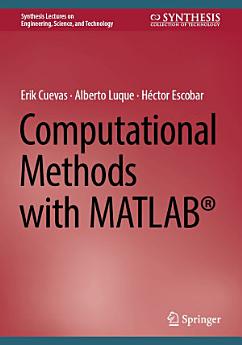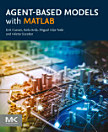Computational Methods with MATLAB®
អំពីសៀវភៅអេឡិចត្រូនិកនេះ
អំពីអ្នកនិពន្ធ
Erik Cuevas received his B.S. degree with distinction in Electronics and Communications Engineering from the University of Guadalajara, Mexico, in 1995, the M.Sc. degree in Industrial Electronics from ITESO, Mexico, in 2000, and the Ph.D. degree from Freie Universität Berlin, Germany in 2006. Since 2006 he has been with the University of Guadalajara, where he is currently a full-time Professor in the Department of Computer Science. Since 2008, he is a member of the Mexican National Research System (SNI III). He is the author of several books and articles. A list of his books and publications can be seen in the CV attached to this application. His current research interest includes Meta-heuristics, computer vision, and mathematical methods. He serves as an editor in Expert System with Applications, ISA Transactions, and Applied Soft Computing, Applied Mathematical Modeling and Mathematics and Computers in Simulation.
Alberto Luque Chang graduated with a Bachelor's Degree in Communications and Electronics Engineering (2013), a Master of Science in Electronic Engineering and Computing (2016), and a Doctorate in Electronics and Computing Sciences (2021) in the University of Guadalajara (UdeG). He is currently a professor in the Division of Technologies for Cyber-Human Integration at the University Center for Exact Sciences and Engineering (CUCEI) of the UdeG. Likewise, since 2021, Dr. Luque is a member of the National System of Researchers, having the distinction of National Researcher Level 1. His areas of interest in research are Metaheuristic Algorithms, Artificial Intelligence, Optimization, Machine Learning and its applications. to Image Processing.
Héctor Escobar received a B.S. degree with honors in Information Systems Engineering from the Autonomous University of Sinaloa, Mexico, in 2018 and an M.S. degree in Electronics and Computer Engineering from the University of Guadalajara, Mexico, in 2021. He is part of the University of Guadalajara, where he is a full-time Ph.D. student in the Electronics and Computer Science program. His current research interests include Metaheuristics, computer vision, artificial intelligence, and Agent-Based Modeling.




